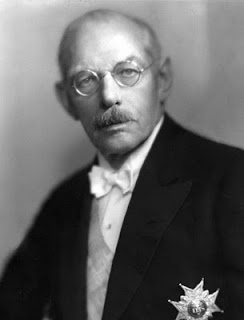Marcus Wallenberg Senior (1864-1943) and Marcus Wallenberg Junior (1899-1982) successfully carried on the work that was initiated by André Oscar Wallenberg (1816-1886), who in 1856 founded the family bank, Stockholms Enskilda Bank. Markus Wallenberg Senior and Junior can be considered as a relevant case for illustrating the prerequisites of a stabilizing ownership role for the following reasons:
- From modest beginnings the Wallenberg sphere had grown to employ 500 000 people in a number of companies with a total turnover of 125 mrd SEK, when Markus Wallenberg Junior died in 1982.
- The Wallenbergs have been playing an important role in Swedish industry, including many of the most successful Swedish companies with extensive international operations.
- When the Wallenberg family purchased shares of companies it was not a passive investment but it also meant personal commitment. Not only money was invested but also the personal resources of the Wallenbergs.
- The Wallenbergs made a determined intervention into the operations of the companies whose performance was not considered adequate. However, they also contributed positively to the performance of the companies belonging to their group during periods of reasonably good performance to guarantee that performance in the future.
The Stabilizing Ownership Function
The importance of carrying the owner’s responsibility has long traditions in the Wallenberg family. André Oscar Wallenberg emphasized the social responsibility that results from being involved in industrial activity to his son Marcus in the letters that he wrote to him. However, Marcus Wallenberg Senior later on became critical of his father for not having revitalized the industrial firms when this was necessary. During his career Markus Wallenberg Senior himself became a specialist in revitalizing companies where the family was playing a role.
Markus Wallenberg Senior emphasized the importance of finding good managers for companies that were experiencing problems. He developed a unique skill in finding creative solutions for: finding and attracting talented managers matching the management resources with the demands set by the business situation giving advice and any other support needed to the selected manager.

Marcus Wallenberg Senior
Marcus Wallenberg Senior spent much of his time restructuring companies that were having problems due to the decline of their business ideas. He made clear demands on general managers of the companies in the Wallenberg Group and those who did not meet the requirements were personally dismissed by him. The number of key executives that he dismissed during his career is quite large. In fact he was quite critical of his father who did not make changes in incompetent management structures. Markus Wallenberg Senior was very much aware of his role as the creator of corporate values and norms. According to him, those who are not performing well should be dismissed not only because they are not worth their salary, but also because if they are allowed to remain in the company, the others in the firm do not find it worthwhile to do an excellent job.
Marcus Wallenberg Senior’s functioning in the ownership role was not only evident in companies whose business idea had started to decline. On the contrary, Marcus Wallenberg Senior was also active in creating new businesses based on new technologies. He played a key role, for example, in developing businesses in the new diesel engine and telephone technologies. He did not limit his role to financing but also to creating markets and developing international business opportunities for the new technologies. In doing so he actually determined to a large extent the future mission and role of these companies.
Before Marcus Wallenberg Junior took over from his father he was carefully trained both by his father and by a number of people with whom he worked during a period when he was sent to several foreign countries for a traineeship. From his father he inherited a sense of responsibility for the companies in the sphere. His basic values were strikingly similar to those of his father’s. He clearly understood that if an industrial manager fails, this catastrophic consequences for a great number of people. He very strongly emphasized the responsibility that the company has to its employees and to society as a whole. The person who has the ultimate responsibility for a company must make sure that the management resources are adequate for the continuous development of the firm. If this is not the case, the owners must act.

Marcus Wallenberg Junior
- Defining the company mission and role
- Participating in industry level restructurings including ownership changes
- Selecting and changing top management
- Influencing the company culture
Source
Jyrki Veranen (1987, 102-109) Ownership Function and the Performance of the Firm: A Study of the Renewal Processes of the Firm.
Ei kommentteja:
Lähetä kommentti